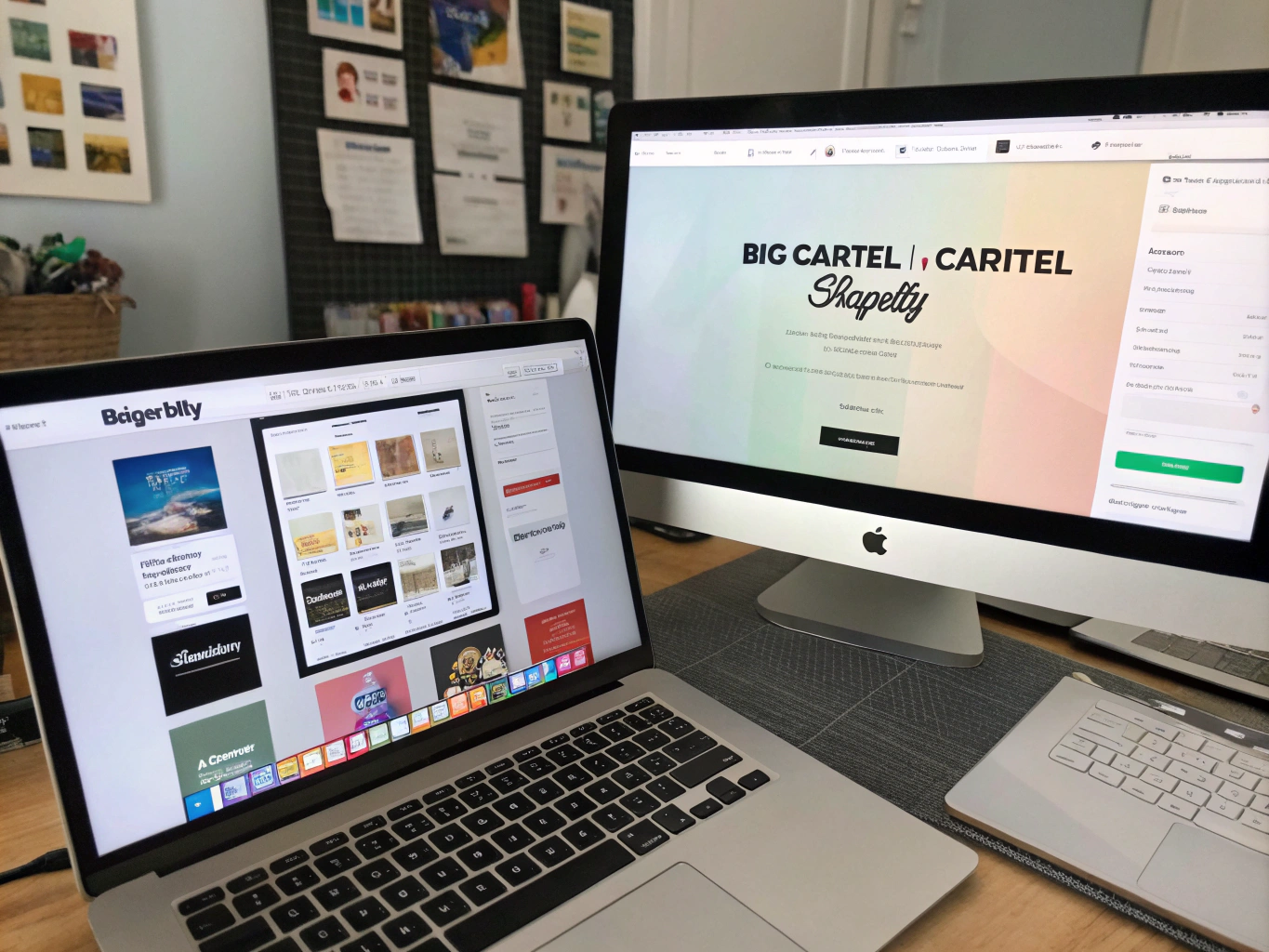
Choosing the Right E-commerce Platform: Big Cartel vs Shopify
As a business owner, selecting the right e-commerce platform can significantly impact your brand’s growth and sustainability. Both Big Cartel and Shopify offer unique advantages, catering to different business needs and strategies. In this comparison, we’ll explore the key design and functionality aspects that could influence your decision. For a more detailed analysis, you can check out the full article on big cartel vs shopify.
Understanding Your Business Needs
Before diving into the specifics of each platform, it’s crucial to identify your business needs. Are you an artist looking for a simple way to sell your creative works? Or are you a growing brand with complex inventory and marketing requirements? Understanding these needs will guide your decision-making process.
Big Cartel: A Minimalist Approach
Big Cartel is ideal for independent artists and small businesses that prioritize simplicity and ease of use. With its minimalist design, it supports a straightforward and user-friendly setup. This platform allows you to focus on showcasing your products without getting bogged down by complex features.
One of Big Cartel’s standout features is its affordability. It offers a free plan that lets you list up to five products, making it an excellent choice for those just starting. However, this simplicity comes with trade-offs in customization and scalability, which might limit your growth as your business expands.
Shopify: Scalability and Customization
Shopify, on the other hand, is designed for scalability and offers extensive customization options. Its wide range of templates and third-party apps allows you to tailor your store to fit your brand’s unique identity. Whether you’re managing a large inventory or implementing advanced marketing strategies, Shopify’s robust infrastructure supports your business goals.
Over 1.7 million businesses worldwide use Shopify, highlighting its popularity and reliability. Its pricing plans cater to various business sizes, offering flexibility as your business grows. However, this sophistication might require a steeper learning curve, especially for those new to e-commerce.
Design and User Experience
Big Cartel’s Simplicity
Big Cartel’s design philosophy centers around simplicity and functionality. Its themes are clean and straightforward, ensuring your products take center stage. This approach reduces friction for customers, allowing them to navigate your store easily. If design isn’t your forte, Big Cartel provides a hassle-free way to create a visually appealing online store without extensive coding knowledge.
Shopify’s Customization
In contrast, Shopify offers a more extensive selection of themes and customization options. This flexibility enables you to create a unique and engaging shopping experience that aligns with your brand’s identity. Shopify’s platform empowers you to integrate advanced features, such as customer reviews, wish lists, and dynamic product displays, enhancing user engagement and conversion rates.
Strategic Growth and Business Implications
Your choice between Big Cartel and Shopify should align with your long-term business strategy. Big Cartel’s straightforward approach is perfect for those focusing on a niche market with limited product lines. Its low overhead costs and ease of use allow you to concentrate on building your brand’s identity and customer base.
Shopify, with its scalability, supports ambitious growth strategies. If you plan to expand your product range, explore international markets, or invest in comprehensive marketing efforts, Shopify’s robust tools and integrations offer the support you need. Its advanced analytics and reporting features provide valuable insights into customer behavior and sales trends, enabling data-driven decision-making.
Actionable Recommendations
As you consider your options, ask yourself these key questions: What are your immediate and long-term business goals? How much time and resources can you dedicate to managing your online store? Do you need a platform that can grow with you?
If you’re just starting or have a small, focused product line, Big Cartel’s simplicity and cost-effectiveness make it an excellent choice. For businesses with ambitious growth plans and a need for advanced features, Shopify’s scalability and flexibility are hard to beat.
Ultimately, your decision should reflect your business strategy and growth aspirations. By aligning your e-commerce platform choice with your brand’s vision, you set the stage for sustainable success.
FAQs
Is Big Cartel the same as Shopify?
Big Cartel and Shopify are both e-commerce platforms, but they cater to different types of users. Big Cartel is designed primarily for artists, makers, and small indie brands, focusing on simplicity and ease of use with a lean set of features. Shopify, on the other hand, offers a more robust platform suitable for a range of businesses from small startups to large enterprises, providing a wider array of customization options and features.
What is better than Big Cartel?
Whether a platform is better than Big Cartel depends on the specific needs of the business. For small artists and independent sellers who need a straightforward, easy-to-use platform without requiring extensive customization, Big Cartel may be ideal. However, platforms like Shopify or WooCommerce might be better for those requiring more scalability, extensive features, and deeper customization options to grow their business.
What percent does Big Cartel take?
Big Cartel does not take a percentage of sales from its users. Instead, they offer a straightforward pricing model with monthly plans. The platform allows for a certain number of products based on the plan, and charges a monthly fee, but it does not take a cut of the sales or transaction fees, making it unique compared to many other e-commerce platforms.
Is there a platform better than Shopify?
Determining if there is a platform better than Shopify depends on the specific requirements and scale of the business in question. While Shopify is highly regarded for its extensive features, scalability, and flexibility, other platforms like WooCommerce, Magento, or BigCommerce might be more suitable for businesses with specific needs. WooCommerce, for example, is often preferred by those who want deeper customization and control over their store, while Magento is favored by large businesses requiring a highly robust, enterprise-level solution.
Checkout ProductScope AI’s Studio (and get 200 free studio credits)
